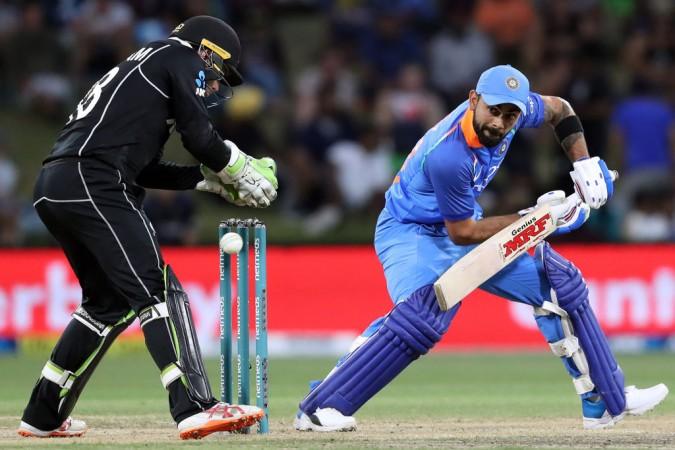
Those who truly love cricket have always felt a mystical element in the game. Whether it is the tendency of the sport to never let anyone get bigger than it or the major part played by luck, there seems to be some higher power which is often at play.
But way back in 1982, a documentary by BBC looking to analyse cricket, especially the arts of batting and bowling, tried to understand the minute body mechanics that lets players succeed in the game. They used a bowling machine and brought in top English batsmen like Allan Lamb and Peter Willy to bat against this machine. Based on the knowledge of human reflexes and the speed at which the ball was travelling, the scientists tried to understand how the batsmen's reflexes work to play the ball.
Shocking results
But the results of the test left everyone flummoxed. It turned out, at least in the results of the test, that there is no scientific explanation of how batsmen are able to bat well, and succeed, against a delivery that is not short in length and moves a little.
Even accomplished international batsmen like Allan Lamb and Peter Willey seemed clueless while batting against the bowling machine on an artificial pitch with a subtly uneven surface to move the ball. Those who conducted the tests said that for any human being, including a batsmen, at least 1/5th of a second is needed to see something and respond to it with a muscular movement. A ball, bowled at normal pace, would have travelled around 2/3 of the length of the pitch in that time and hence, there is no possibility of a last-minute adjustment. A shorter ball though, does give the batsmen more time.
#OnThisDay 1982: Cricket was declared to be scientifically impossible. pic.twitter.com/DOpYRMDAnm
— BBC Archive (@BBCArchive) June 9, 2019
But then, how does one explain the phenomenon of, or theory of, batsmen reacting to the length of the ball? When the scientist who was conducting the experiment was asked about his explanation for good batting, which necessarily involves more than just good luck, he said there is no explanation. "The answer is, we just don't know. We know how bowlers can be great. They have to pitch the ball within 200 milliseconds of the batsmen and get the ball to move a little bit. But as far as we know, the batsman can do nothing about it," the analyst said. When asked further whether he can explain how batsmen are able to play well, he simply said: "I can't. It just seems rather mystical to me."
But the science wasn't able to convince many batsmen. The video clip of a part of this documentary was tweeted by BBC Archives, a twitter page of BBC dedicated to posting clips of old programs broadcasted on the network. It ends with the incomparably outspoken Geoffrey Boycott, then an active batsman, saying, in as sharp a language as today, "This buffoon has come up with this idea that all us batsmen predetermine what sort of shot we are going to play.... That it is absolute rubbish. Almost everybody that can bat and has played fast bowlers at the highest level can tell you that he can't predetermine anything, else, he would get a smack in the teeth."
Since some batsmen do possess great consistency while others do not, batting can't just be a matter of luck. So, are good batsmen divinely blessed? Maybe, the term 'God of Cricket' applied to Sachin Tendulkar is more than just an epithet.

















